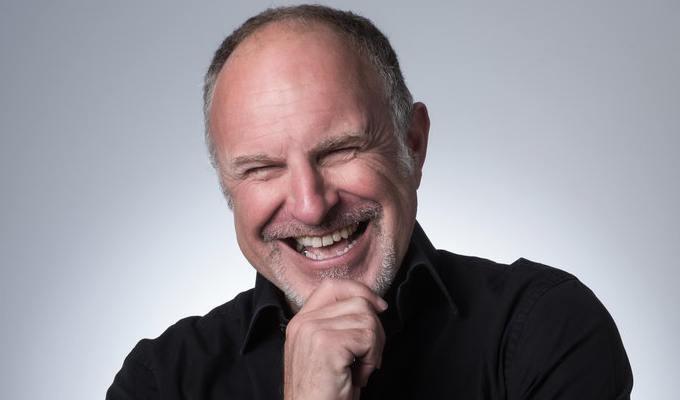
Guilt & Shame: Going Straight
Note: This review is from 2014
Review by Steve Bennett
So this is the troubling story of the cult-like camps set up to ‘cure’ homosexuality by the hardline religious, in this case the fundamentalist followers of the big JC himself. No, not Jesus Christ; Jeremy Clarkson.
Guilt and Shame are possibly the only comedy double-act who have some sport with the fact that one of them is gay (Rob Cawsey) and the other one straight (Gabe Bisset-Smith). How modern! Over the previous three years, this situation has been used to spark crass sex jokes and boisterous rabble-rousing that owed more to brash Faliraki holiday reps than sharp-brained comedians. But Going Straight marks an evolutionary leap towards maturity for this charismatic young duo without losing the energy of the performance.
The premise is that Rob, fed up with his lack of bedroom action, has decided that maybe homosexuality isn’t for him. Which ties in nicely with Gabe’s recent conversion to the sect of Clarkstianity, devoted to the Top Gear host’s gospels of what maketh man: misogyny, banter and casual racism. Following the cult’s five-step programme, Rob should be able to free himself from his ‘abnormal’ dependency on man love and become a proper blokes’ bloke.
The sketches that follow are a wild send-up of the laddish culture and its fear-fuelled homophobia; a message that Guilt and Shame deliver through cheesy choreography, bold audience participation and their trademark pornographic mime. For they cannot quite escape the pull of the crass, and more than once slide into a few unsophisticated scenes that reduce the humour to the level of mimed blow-jobs.
Cheap money shots aside, they use their youthful vigour for good. Few homophobes are likely to be in the audience, but even if they are preaching to the converted, it’s with the celebratory spirt of an impassioned gospel pastor more than a dry C of E vicar. Their energy is infectious and buoys the audience at an excited level for the whole hour, papering over the gaping holes in the loose story.
The important thing is that behind all the boisterous high-jinks is a real humanity and friendship, which gives the show a heart. The photo of Gabe and Rob blissfully happy at some party, which is displayed at the end, is rather touching, but even as the well-chosen soundtracks manipulate the emotions en route, a solid sentiment lies behind most of the silliness. And this gives the feelgood spirit added potency.
Review date: 1 Aug 2014
Reviewed by: Steve Bennett
Reviewed at:
Underbelly Cowgate








